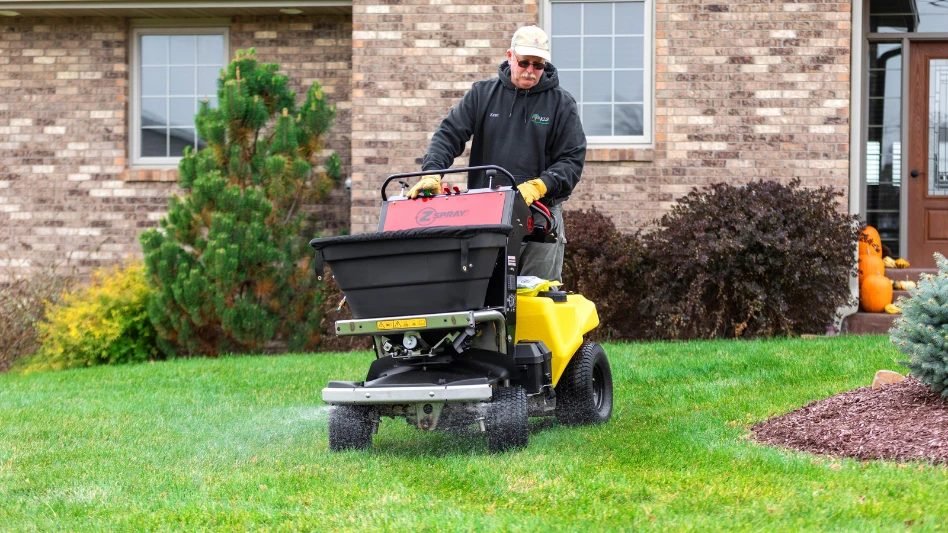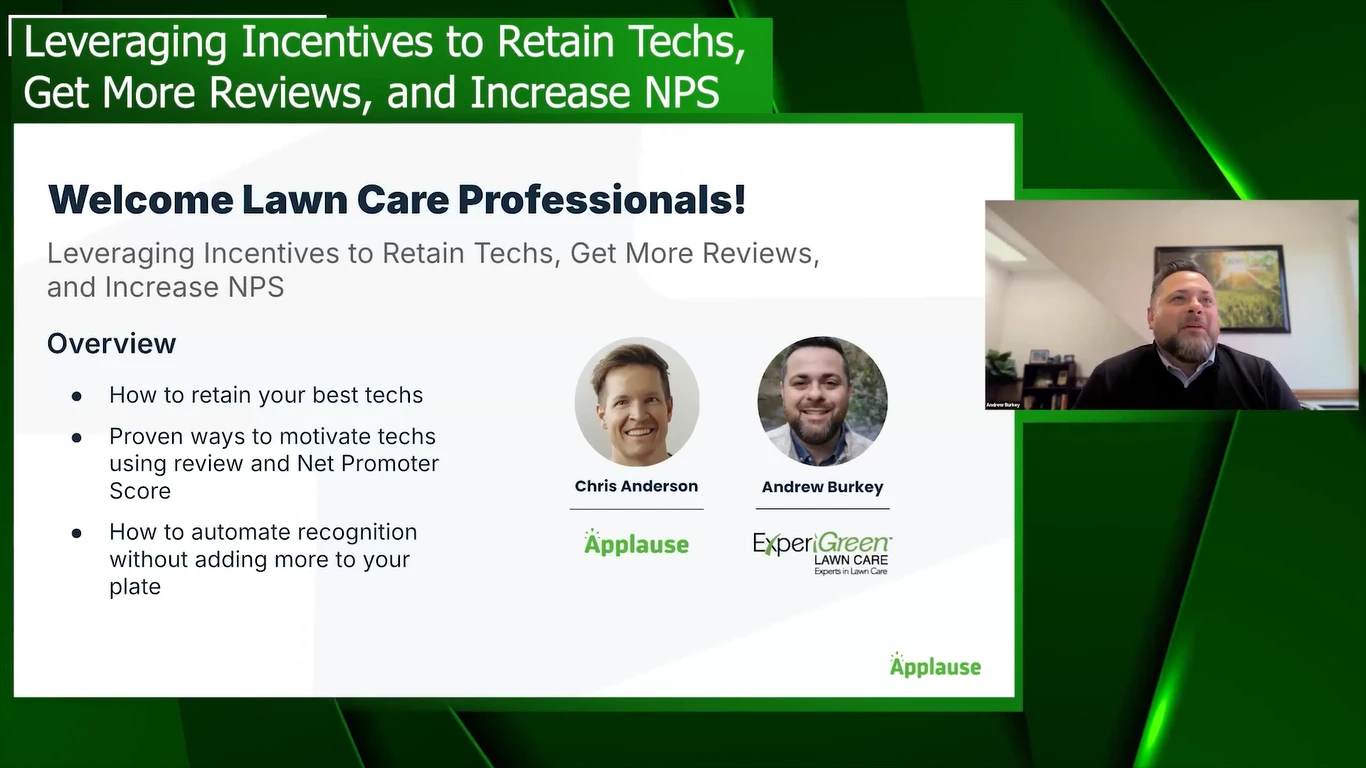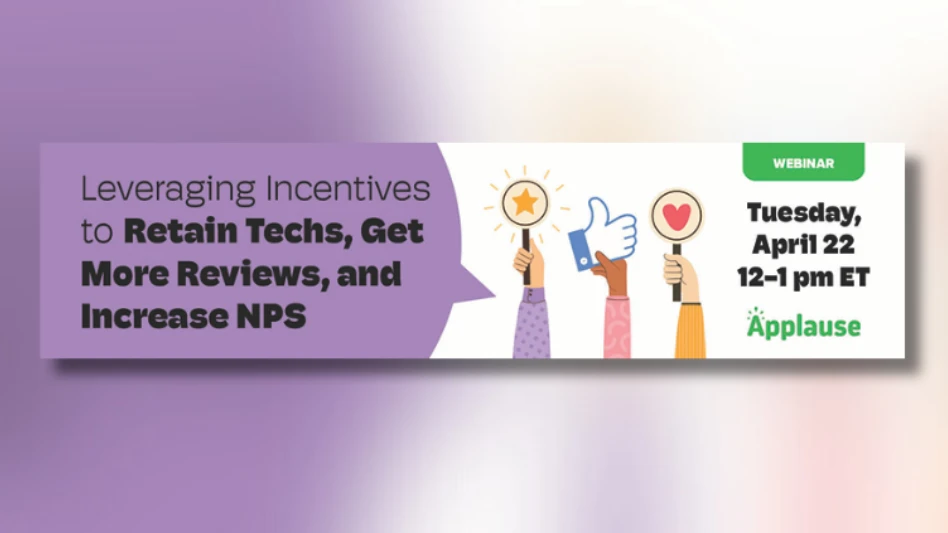
In the years since the merger, BrightView has seen key leadership leave, including co-CEOs Roger Zino in 2015 and Andrew Kerin in 2016, and struggled to integrate the cultures and staff of the two legacy operations. Andrew Masterman joined the company last fall from Precision Castparts, a $10 billion aerospace parts manufacturing company recently acquired by Berkshire Hathaway.
In an exclusive interview, Masterman shares his vision for BrightView, discusses the company’s first major acquisition since the merger and what it means to have a leader from outside the landscape industry at the helm of the world’s largest landscape company.
Chuck Bowen: There’s nobody within the landscape industry that’s ever led a $2 billion company. But there’s a contingent in the industry that says “This guy doesn’t know landscaping. He’s not one of us.” Do you worry about that?

Andrew Masterman: I don’t worry about it at all. Look, we have 23,000 employees. When you put in all of our sites, we have almost 300 geographical locations throughout the country. Managing that kind of an enterprise takes an approach to make sure you create the entrepreneurship and the autonomy within the structure of having all the advantages of scale.
It takes a different skillset to understand how to do that to go in and manage that kind of a scale. Fortunately, I’ll tell you, the senior leadership we’ve tapped into in the organization, well, they may not all – some have – come from the industry. Taking that balance, taking that mixture of talent that allows you to understand the advantages we can do from taking a scale and then translating that into an entrepreneurial environment for our leaders in the field to excel at their craft I think is unparalleled in the industry.
CB: As we’re talking today, you’ve got 100 days under your belt. Tell me what you see as BrightView’s biggest challenges in the next year or two.
AM: Well, I think the challenges we face are no different than the challenges the rest of the industry faces. You said it right when we walked in, crew hiring, crew retention, the challenge you have on immigration. I mean, all that continues to face us, just like anybody else. That being said, we’re seeing an increasing number of just full-time U.S. workers that apply here and are just permanent residents.
CB: What do you think is driving that increase in employees who are not guest workers?

AM: It’s just deliberate attention to making sure that we focus in on getting the communities that we have. Looking at diversified products that we can offer. We’ve made some push into looking at offseason activities, not just snow clearing. You look at our branches in Boston, you look at our branches in Chicago, we’ve had a heavy decoration growth. Most of Chicago’s downtown holiday decorations are done by our Chicago branch.
CB: You talked about the immigration being in the news. You guys are a very large user of the H-2B program. What impact do you see the Trump administration having on BrightView?
AM: We’re 100 percent E-Verify. So any new employees that we hire has to be – have to have the right to work in the United States. And that’s not any change versus last season. It’s something we just deal with.
CB: Tell me why Marina Landscape’s maintenance business was an attractive acquisition for you.
AM: We’re focused on organic growth with our current clients. We’re also focused in on joining up and acquiring those companies that make sense from either a geographic footprint or from a culture, but mostly from a geographic footprint either matching with our current locations or providing potential opportunities to provide those services. We have places we don’t exist. Marina was a great matchup with our current footprint in Southern California. Marina, culturally, the approach to business that the leadership has had matches up with how we approach running a business, which is a sense of accountability and a sense of – an orientation toward growth and an orientation toward safety and quality.
CB: For a long time Brickman or ValleyCrest was the exit strategy for a lot of companies. And I don’t think that works anymore.
AM: No. The reality is we have a great national presence. And number one, we want to make sure we service our clients we have today and create great opportunities for the employees we have, number one. As we look outside of that for either areas we aren’t present today or areas that make a lot of sense which complement our current activities, we’ll absolutely entertain those companies that culturally are going to fit within the way we run the business.
I think you said it well earlier. This is somewhat about the Marina acquisition and in light of that is what you asked and that it kind of that signaled BrightView’s back. All the change that has occurred with the merger and some of the instability in leadership … BrightView’s here. We’re solid. We have a committed group, a dedicated group of employees. We want to create safety, quality, excellence in the field. And we’re focused here on making sure that we have a local approach with a national presence.
CB: How do you do that?
AM: Really by giving the branch manager as many tools and freedom to manage the business as they see fit within the branches. So many times, national companies will come in and manage it nationally with a local presence.
CB: What did you change for those branch managers that wasn’t the case before?
AM: A lot of it is we decentralized functional businesses. So there was a strong central approach within the group and what we’ve done is really tried to take many of the central resources that we had and push them out into the field. For example, we had a very centralized sales organization. There was a head of sales here in Plymouth Meeting.
There’s no longer a head of sales. Sales reports into the regionals. We’ve taken out the bureaucratic layer that we have centrally, try and get as much functionality down day-to-day touching clients, touching crew into the field.
“We’ve made some push into looking at offseason activities, not just snow clearing.” Andrew Masterman, CEO
CB: So for example, the sales force in western Pennsylvania will report to a regional sales rep?
AM: As opposed to someone like me. Or more appropriately probably from Western Pennsylvania. Let’s talk about Phoenix, Arizona. OK. (Laughs) That guy in Phoenix, Arizona, is not going to report to somebody in Plymouth Meeting. That guy in Phoenix, Arizona will report up through a guy that’s in the Southwest region, who knows the region, gets the customer base, gets the horticulture, gets what we’re about in the Southwest.
CB: What about purchasing? Is that at the branch level? Is that at the regional level? Is that up here?

AM: We have buying programs that we negotiate nationally. We also look at individual branches on what’s needed for those branches for specifically what operates and how they can effectively – if they need to do something that’s unique, they absolutely should have the autonomy and flexibility to do something that’s unique.
Something that’s pretty unique on an equipment standpoint that we can do at BrightView: We’re buying hundreds of industrial strength electric lawn mowers. (Mean Green Mowers is) working with us on developing a national platform to be able to go into verticals and really sell a quiet service in multiple markets.
Again, we can do this. We have scale. We have size. We can experiment with some of these things. We have created dedicated vehicles and trucks with charging stations for this equipment that we’ll be able to put electric lawnmowers, you know, both push mowers and standup mowers in the same trailer, be able to be plugged in with battery backup, do a job, come back in, plug them in.
That trailer’s been outfitted to do this. And then to go to those clients, multiple clients in a string of routes where we can be a 100-percent electric crew.
CB: There are a lot of eyeballs in the industry and outside the industry on you, to a lot of people in the country, what BrightView does is what landscaping is.
AM: We pride ourselves on that. We are the leaders and we’re going to maintain leaders, whether it’s introducing electric mowers out into the field and taking all electric crews and seeing how that resonates within our client base, or whether it’s just trying to take a quality standard and making sure that quality standard is the same whether you go to Boston or you go to Southern California.
That’s an innovation, just an innovation in a different way. It’s an innovation of quality. Every single one of our crew members should expect that we manage the company to the point where they arrive at work and leave work exactly the same. And we need to be the torchbearers that absolutely drive that message in, and proves that this is the best and safest place possible.

Explore the May 2017 Issue
Check out more from this issue and find your next story to read.
Latest from Lawn & Landscape
- PERC helps debut propane direct-injection fuel system at ACT Expo 2025
- Retargeting Ads – A Secret Weapon for Growing Your Lawn Care Business
- Leading a growing company
- Project EverGreen launches Clean Air Calculator
- Rain Bird acquires smart lawn care company OtO from Toronto
- PBI-Gordon names Marvin as VP of research and development
- Mean Green rolls out Vanquish Autonomous mower
- Focal Pointe launches new podcast series






